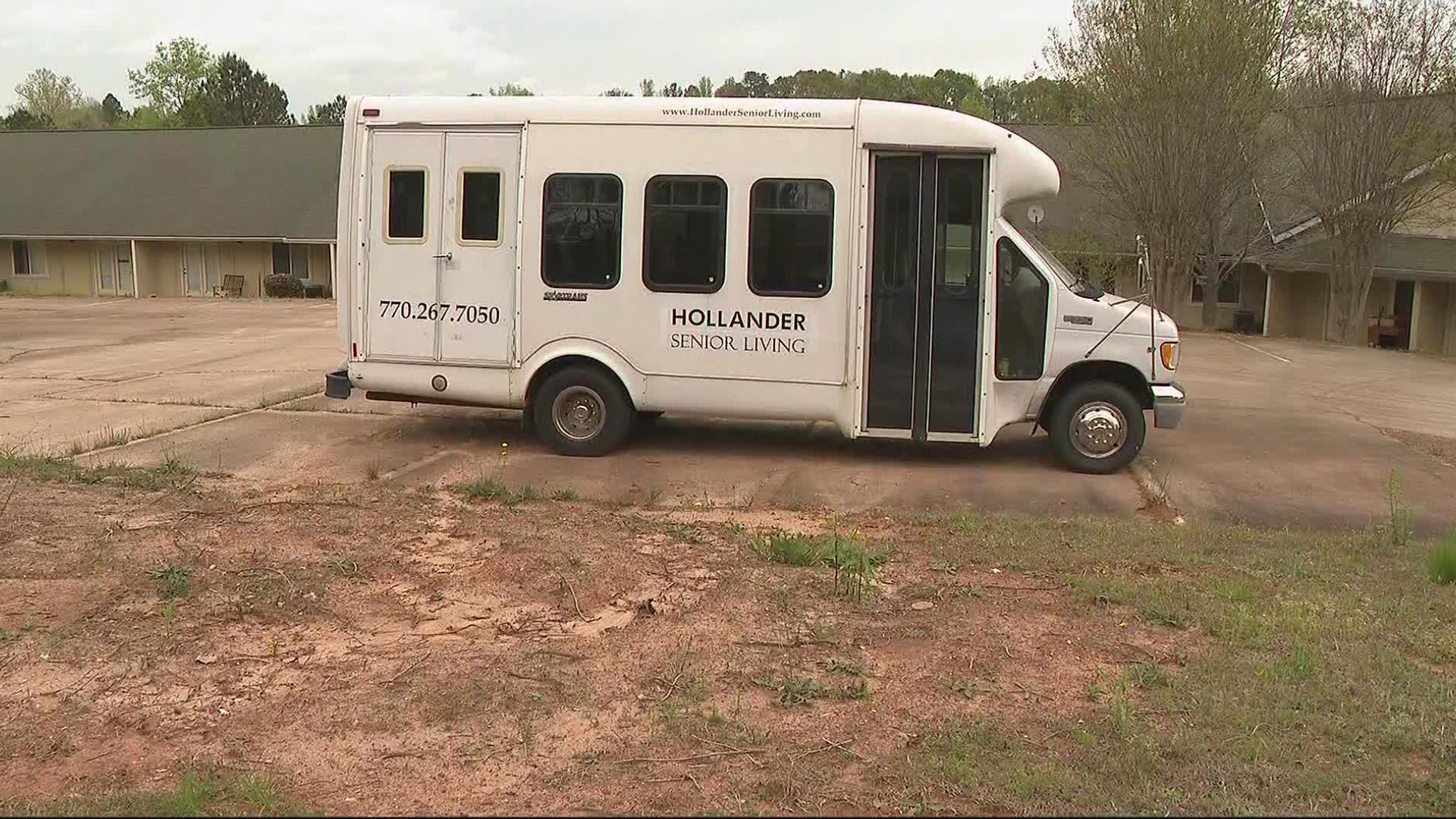MONROE, Ga. — Kristen Henshaw is preparing her mother's new home at the Oaks at Snellville. The facility is undergoing renovations, putting in new carpet and one can hear moving trucks backing up on the property. Carol Sutton lived less than two months in her last place, Hollander Senior Living in Monroe.
“It was a nice place," Henshaw said. "It was a decent price, the care was good. There were some issues, but what isn’t?”
Henshaw said residents were notified March 22, via a letter, that they would have to move out by the end of April. But the timeline was moved earlier and earlier. By Sunday, Henshaw said, all the residents at Hollander were forced out and forced to look for new homes.
“Thirty days is hardly enough time to begin with, and then suddenly we’re out less than three weeks after getting the letter," Henshaw said. “My mom has a number of health issues. She has congestive heart failure, type two diabetes, kidney disease. So finding a place that will really care for her, properly administer her medicine, make sure she’s ok if she hasn’t seen them for a bit, is important."
Lisa Nichol's mother lived at Hollander for 15 years, reportedly the longest-tenured resident at the facility. While her mother has since relocated to a senior living facility in Jefferson, Ga., Nichol said moving out proved traumatic for her mom, who's on hospice.
"She’s faithfully paid her rent every month for 15 years, and I feel like they just threw her to the curb," Nichol said. "She’s not going to be here a whole lot longer. I would have put her in a place where she’d be much more conformable than a strange new environment with strange new people.”
The facility's owner, Elliott Hollander, told 11Alive he tried to put the property up for sale because the loan balance on the property came due. However, Hollander ran into roadblocks. First, he said he received little to no interest in investment prospects for senior living facilities during the pandemic. He mentioned paying off the loan and building another community should he be able to refinance with the bank or extend the loan. However, he said the bank was skeptical about refinancing a senior living facility in the middle of the pandemic.
In a letter sent to residents at Hollander Senior Living, it cited COVID-19 as being a prominent reason why the facility was closing. Hollander said he simply ran out of options, and the bank foreclosed on the property and gave him a month to vacate.
"I do understand, because it’s very stressful to move, especially when you’re elderly," Hollander said. "I've lost my property. We’ve lost some really great employees and our wonderful residents. I apologize that we were unable to keep the property open indefinitely so we could keep operating.”
Hollander said employees were quitting as soon as they heard the facility would close. However, he maintains that the senior living facility made a positive impact on hundreds of lives. He said staff assisted in finding residents new homes, and once those new places were found, the last person to move out would do so April 15. That would have been ahead of the April 30 deadline to vacate the property.
Hollander said by April 7, there were only 12 residents remaining. However, he said he was notified about unexpected staffing changes, which would have impacted the quality of care. After contacting other facilities and seeing if they could accommodate the residents, Hollander said he "went with the decision that gave the residents the best care" and shuttered early.
Legal analyst Page Pate said in this case, Georgia law requires that the business (a personal care home) give residents 60-days notice before evictions begin. A transaction that switches ownership requires a 30-day notice be given, but Pate said foreclosures and bankruptcies fall under the 60-day requirement. Hollander said allowing that much time to stay open simply wasn't possible due to the staffing shortages.
"You can’t just pull the rug out from under them," Pate said. "You can’t just shut down and tell them get your stuff. You have to be out in any time less than 60 days. These rules were written by the Department of Community Health to make sure residents, like the ones here in Walton County, are not kicked out on the street without sufficient notice.”
Pate said there was a history of complaints and inspection reports for Hollander Senior Living, showing the facility had some violations in the past about resident care, providing medication in appropriate ways, care plans and cleanliness. He said residents were able to file complaints with the Georgia Department of Community Health and can pursue damages against the facility or an injunction to require the place to stay open for a required amount of time.
The entire process has left the families of Kristen Henshaw, Lisa Nichol and others frustrated, confused and curious about their next steps.
"We were put down so many rabbit holes of emotion," Nichol said. “It felt like her home. The staff was her home, and then she lost it."

